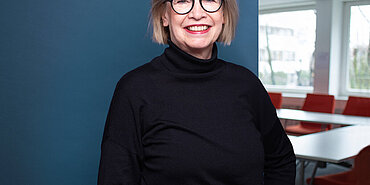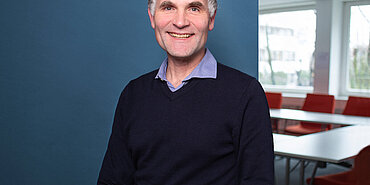IJAB: Ms Yurttagüler, what is the state of play for Turkish civil society?
Laden Yurttagüler: There is no simple answer to that question; Turkish civil society is too diverse and heterogenous. I’ve spent many years researching and exploring this subject. My colleagues and I expected that given the political and economic environment, our civil society would shrink over the last decade, but we were wrong. On the contrary, the number of civil society organisations and their activity levels are on the rise. There are a few reasons for this. For one, there is a rising number of pro-government organisations that draw many volunteers. They don’t work on issues like human or civil rights, instead they have a charitable or cultural purpose. For another, the refugee crisis has meant that the number of organisations supporting them has doubled, if not tripled.
While some groups advocating for so-called “liberal” issues such as human rights, women’s rights or LGBTQ rights have withdrawn, other, more service-oriented organisations have appeared to fill the vacuum. Their values are more palatable to the government. Youth organisations in particular are struggling with the political atmosphere and bureaucratic oversight. In addition, they have been under financial pressure for three or four years now. The economy is in crisis, meaning less financial support from public or private sources and individual donors. Finally, the legal status of civil society organisations is problematic. The ministry of the interior can choose to inspect their accounts at any given time. That’s not a pleasant experience, and it’s time-consuming. Also, any civil society group must operate a physical office, which incurs running costs. While that is not a direct form of repression, it's a challenge for organisations. For instance, if a group of 20 people wants to apply for funding, they have to register as an organisation and indicate a real address as their office. In December 2020, the Turkish parliament adopted anti-terrorism legislation allowing the government to dissolve an organisation and/or appoint a trustee to oversee it, if this is deemed necessary. Turkey is not the only country to adopt laws like this. Russia, Hungary and others have also done so.
It’s the younger generation that takes action
But Turkish civil society is surviving even under pressure. It largely consists of young people who advocate for gender equality, for the climate, for animal rights or political participation. Often their activities lack formal structure. Youth organisations, too, continue to function by remaining under the radar. For instance, if they manage to get funding for a gender mainstreaming project, instead of staging a public campaign they’ll create a network of organisations and activists and conduct their activities behind the scenes. We are seeing this happen with groups that are working on LBGTQ issues or women’s rights. The latter movement, in particular, is really strong in Turkey.
IJAB: What are the consequences of what you describe for youth and expert exchange?
Laden Yurttagüler: Before I answer that question, let’s consider the practicalities. If you don’t have a passport, you can’t get a visa and cannot take part in an in-person exchange. The pool of potential participants is hence limited to the middle classes and wealthy population groups, unless you know someone inside the government system. Then there’s the economic crisis and the inflation of our currency. Trips to Europe are currently extremely expensive, and not many young people can afford to travel.
As for the political environment: 15 years ago, when I took part in youth exchanges myself, we could talk about anything, human rights, minority rights, whatever. Today the range of topics is smaller. That being said, when young people and experts go on an exchange, they come back with new contacts that are highly valuable for them – and that’s mutual. An exchange is a space for them to exchange their views safely and freely. What we learn from each other, and how, has changed since Covid. Of course peer learning needs to be structured, but we definitely have more options now.
New spaces may open up for youth organisations
IJAB: How will the latest elections impact on civil society? The outcomes of the presidential and local elections could not be more different.
Laden Yurttagüler: No analysis has been done so far of the impacts, so I can only share my personal observations. For government critics, the outcome of the presidential elections was a disappointment. I wouldn’t say those voters seemed depressed, but they did appear subdued and uncertain. They asked themselves what the future would bring, politically and economically, and what this might mean for them personally. The prevalent mood in the run-up to the local elections was hence pessimistic. But voter turnout was high, and so the outcome was unexpected. In the major cities, the opposition claimed most votes – and it is in these cities where 80% of the country’s economic output is generated. There were also significant differences in voting behaviour between urban and rural areas, as well as between east and west. These disparities are reflected in the state of civil society. I think that the changes will result in new opportunities, for instance for more cooperation between civil society and local politics. Youth organisations, too, may find themselves with new spaces for action, such as local youth centres. Maybe we’ll see a closer rapport between young people and cultural groups. Then again, we don’t know what the government-friendly civil society groups are thinking. We do see what public message they are putting out, against abortion rights, against women’s rights, against LGBTQ. But we don’t know what they are saying internally, and we don’t know what they are planning, or not planning, in the wake of the elections. And as long as they remain non-violent, they, too, need to be considered as part of civil society, whether we like it or not.





